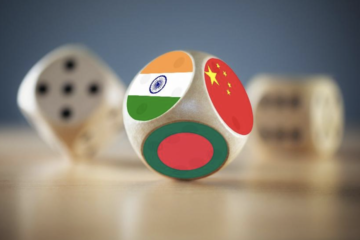To summarise developments within the Islamic world between 2010 and 2020 as turbulent would be an understatement. Drastic regional realignments caused by the stentorian momentum of the Arab Spring and the Saudi-Iranian rivalry have changed the Middle Eastern and North African geopolitics beyond recognition. As critics harp on accusations that Riyadh’s revamped foreign policy has made it unrepresentative of Sunni Muslim values and the nations that subscribe to them, Islamist elites in Ankara are continuing to reorient Turkish foreign policy eastwards and soliciting greater leverage in regional political processes. Although feasible, a potential leadership transfer from the Kingdom to Erdogan’s AK Parti is but one of many options. Indonesia is another formidable contender to lead the Muslim world, benefitting from years of industrial growth, political stability, and a pluralistic religious landscape.
Dissipating Saudi Leadership
Throughout the twentieth century, maintaining control among Muslim polities was at the center of Saudi government ideology. The country’s control of Mecca and Medina and thus the annual hajj pilgrimage has made harmonious relations with Saudi Arabia a must for almost every Muslim government on the planet. Saudi contributions to binding Muslims together at the Organisation of Islamic Cooperation and the Arab League further fortified its internationalist reputation. Syncretising Islam values with development has occupied the minds of numerous Saudi leaders and influenced the Saudi Vision 2030, which highlights the Islam’s role in defining the national identity and prescribes the need to retain leadership within the international community of worshippers.
Achieving this goal has never been more difficult for Saudi leadership. In addition to the international outcry over Jamal Khashoggi’s controversial assassination, Riyadh has come under fire for its interventionist actions in Yemen and betraying the Palestinian cause. These accusations are exacerbated by arguments that Saudi Arabia has commercialised pilgrimages and used Islam as a political tool to further its regional interests while simultaneously failing to condemn persecution of Muslims in Xinjiang and Indian-occupied Kashmir.
The Turkish Claim
Turkey was swift to sense those weaknesses and challenge Saudi hegemony. Following a failed attempt at European integration in mid-2000s, Erdoğan’s administration began attempting to project Turkish power at every opportunity. Unlike Riyadh, Ankara does not shirk confrontation with large political players, be they France and Russia or India and China. The Turkish government’s controversial support for the Muslim Brotherhood and Salafi paramilitaries in Syria, although divisive, is yet another example of Turkey vying for supremacy within the realm of Sunni Islam.
Be it the recent reconversion of Hagia Sophia into a mosque, public support for Palestine, or safeguarding the sanctity of the Muslim shrines in Jerusalem, Erdoğan’s actions can be interpreted as a populist attempt at unifying and leading the Muslim world.
Nonetheless, this claim for dominance is intrinsically fragile. Ankara boasts both the financial capital and the manpower to influence its neighbours’ behaviour and has contributed to the recent Azeri victory in Nagorno-Karabakh. Turkey’s links with extremist organisations and bellicose international conduct, however, risk dissuading Muslim polities from siding with Turkey. Likewise, its attacks on the European Union over the refugee crisis and quarrels with France create additional risks. Erdogan’s authoritarianism and alliances with domestic irredentist factions also frequently obscure the country’s overtures towards Muslims.
We Should Look Elsewhere
Although the Middle East is home to additional contenders for pan-Islamic leadership, with Qatar and the United Arab Emirates seeking dominance as well, the Sunni Muslim world is polycentric. As this means that leadership could come from outside the Middle East, we should examine Indonesia’s claim.
Since the mid-2000s, Jakarta has played an important role in precipitating conflict resolution within the Islamic world. Indonesia mediated the Organisation of Islamic Cooperation sessions on the Israeli-Palestinian conflict and contentious negotiations between the United States and Mahmoud Ahmadinejad’s administration in Iran. In addition, Indonesia has worked on strengthening the voice of peripheral Muslim countries in the relevant international organisations. This past leadership provides initial leverage that Indonesia, which is home to more than 230 million Muslims, could use to assert its authority over the Islamic community.
Indonesia’s historic power brokering is not its sole starting advantage. The country is home to 13% of all Muslims and copious resources of oil and gas; the latter could help Indonesia outvie Saudi Arabia while the former stands out in its jurisdictional pluralism. Unlike the Sunni doctrinaires in Riyadh, Nusantara Muslims are more closely aligned to the Islamic doctrine of al-wasatiyyah (moderation and deradicalization). The ideology is embedded in the Indonesian constitutional right of individuals to decide to which Islamic tenets they want to subscribe. The country has strong potential to establish consensus among disparate Muslim groups. With demographic changes shifting the balance of power in the Islamic world eastwards, Indonesia could capitalise on its foundations to generate considerable soft power influence.
That said, we should not rush into declaring Indonesia the winner. Islamic pluralism is upsetting domestic conservatives, so there is no guarantee that other nations and their Muslim populations would be more receptive to Indonesia’s leadership bid. Jakarta has yet to uproot domestic extremism and convert export revenue into sustainable development. Rural Indonesian citizens experience widespread poverty and the country spends just 1% of its GDP on social protection. But if geographic distance and cultural disparities did not prevent the US from attaining hegemony in the predominantly European Western world, why would Indonesia’s chances of replicating this rise to power be any different?


